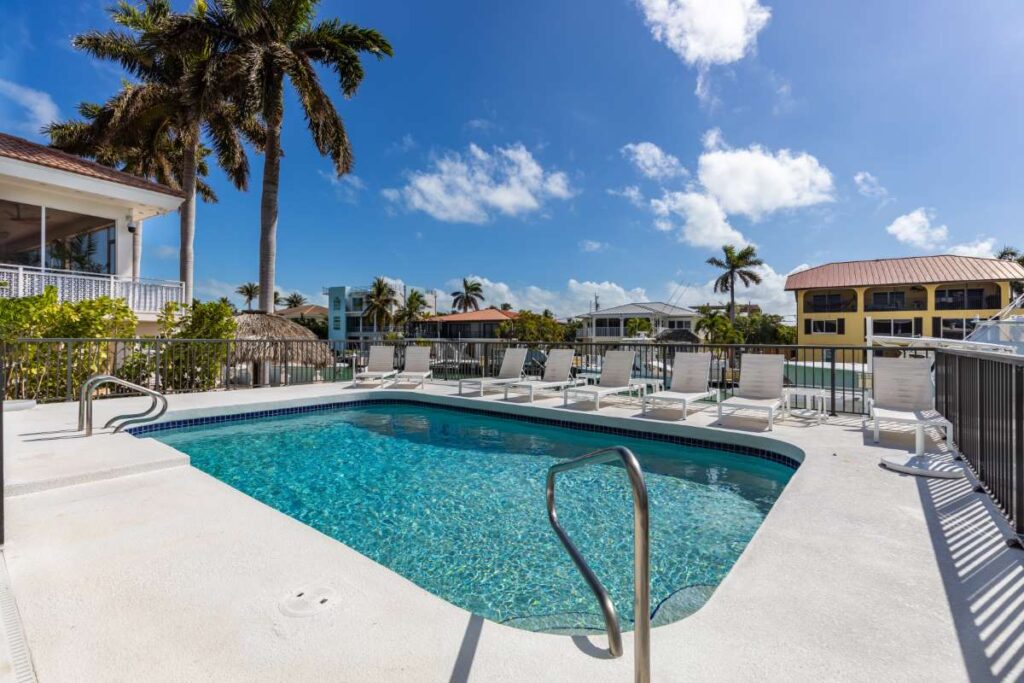How Holiday Gatherings Raise Pool Usage Demands
How Holiday Gatherings Raise Pool Usage Demands
As holidays approach, families and friends gather to celebrate, leading to an increase in pool usage and, consequently, heightened demands on pool service providers. This article delves into the relationship between holiday festivities and pool activity. We will explore the reasons behind the spike in pool usage, the implications for pool service businesses, and how entrepreneurs can leverage this seasonal demand to their advantage.
Holiday gatherings create a unique context for pool usage. As the weather warms up, many families take advantage of their backyards, turning pools into social hubs. Whether it’s a Fourth of July barbecue, a Labor Day weekend party, or a festive New Year’s Eve celebration, the pool often serves as the centerpiece, drawing guests for relaxation and recreation. This increased interest in pool activities leads to heightened service demands that pool maintenance businesses must meet.
During the holidays, pool owners tend to host more frequently, which translates to additional cleaning, maintenance, and servicing needs. From ensuring water quality to addressing equipment issues, pool maintenance companies often see a surge in calls during these peak social months. Understanding this pattern can help businesses prepare for increased demand and optimize their service offerings accordingly.
The Impact of Increased Pool Usage on Service Demand
With gatherings becoming commonplace during holidays, many pool owners may overlook routine maintenance in the excitement of hosting. This neglect can lead to water quality issues, equipment failures, and increased debris in the pool. Consequently, service providers often find themselves inundated with requests for emergency cleanings or repairs just before or after major gatherings.
Statistics show a significant rise in pool maintenance requests during holiday seasons. For instance, a recent study indicated that pool services often see a 30-50% increase in bookings leading up to major holidays. This creates a golden opportunity for pool service businesses to market their offerings effectively and encourage proactive maintenance to avoid last-minute issues.
Understanding the Seasonal Patterns
Recognizing the seasonal patterns of pool usage can help businesses tailor their marketing strategies. For instance, before major holidays, companies can run promotions or offer packages specifically designed for pre-event pool cleanings. This not only ensures that pools are party-ready but also helps in building a loyal customer base that appreciates the timely service.
Additionally, service providers can promote their offerings through social media and local advertising as the holidays approach. Creating engaging content that highlights the importance of pool maintenance before gatherings can educate pool owners and stimulate demand. For example, sharing tips on maintaining water quality or preparing a pool for guests can draw attention to the services available.
Leveraging Peak Demand for Business Growth
The increased demand for pool services during the holiday season presents an exceptional opportunity for growth. Entrepreneurs looking to enter the pool maintenance industry can capitalize on this trend by investing in established customer bases through purchasing profitable pool routes. By acquiring existing routes, they can hit the ground running and meet the demand without the lengthy process of building a clientele from scratch.
Owning an established pool route provides immediate income, especially during high-demand periods like holidays. For instance, businesses can generate revenue quickly by offering maintenance packages or emergency services during peak times. This can significantly enhance cash flow and provide stability as the business grows.
Maintaining Quality Amid Increased Demand
As the demand for pool services surges, maintaining service quality becomes paramount. It is crucial for businesses to have adequate staffing and resources to handle the influx of work. Implementing efficient scheduling and utilizing technology for route optimization can help in managing increased workloads effectively.
Furthermore, providing exceptional customer service during busy times can set a business apart from competitors. Quick response times, reliable service, and effective communication can enhance customer satisfaction, leading to repeat business and referrals. Pool service businesses must also consider training their staff thoroughly, ensuring they can meet the specific needs of clients during peak seasons.
Creating Lasting Relationships with Customers
Building strong relationships with customers is essential for long-term success in the pool maintenance industry. Regular communication, personalized service, and follow-ups after holiday gatherings can foster loyalty. For instance, sending thank-you messages or offering discounts for future services can encourage customers to return and recommend the business to others.
Moreover, implementing a customer loyalty program can be beneficial. Offering rewards for repeat business or referrals can incentivize clients to remain loyal, creating a consistent revenue stream throughout the year, not just during holidays. This creates a win-win situation where customers feel valued, and businesses enjoy stable and growing profits.
Preparing for Future Holiday Seasons
In preparation for future holiday seasons, pool service businesses should consider developing marketing strategies that specifically target the holiday crowd. This can include offering seasonal promotions or bundling services that cater to holiday needs. Customizing offerings according to customer preferences can significantly increase engagement and sales.
Additionally, businesses should keep track of client preferences and seasonal trends year after year. Analyzing data from previous holidays can provide insights into what services were most requested and which marketing strategies were most effective. This ongoing evaluation will allow service providers to refine their approach and optimize their offerings for improved performances in subsequent seasons.
Community Engagement and Brand Visibility
Active involvement in the local community can enhance brand visibility, especially during the holiday season. Participating in community events, sponsoring local activities, or hosting poolside gatherings can provide greater exposure. Engaging with the community not only strengthens brand recognition but also fosters good relationships, encouraging residents to choose local businesses for their pool needs.
Moreover, leveraging social media for community engagement can amplify the reach. Promoting holiday-themed contests or sharing customer-generated content, such as photos of pool parties, can create buzz around the brand. This type of engagement enhances the business’s visibility, making it a go-to option for pool services during busy seasons.
Conclusion: Seizing the Holiday Opportunity
In conclusion, holiday gatherings significantly raise pool usage demands, creating a unique opportunity for pool service businesses to thrive. By understanding the factors driving increased demand, implementing effective strategies, and focusing on customer relationships, entrepreneurs can leverage this seasonal trend for sustainable growth.
As the pool maintenance industry continues to evolve, staying ahead of trends and providing exceptional service will be key. For those considering entering this lucrative field or expanding their business operations, exploring available options such as Pool Routes for Sale can provide a solid foundation for success. The holiday season is an excellent time to reflect on opportunities and prepare for the increased demands ahead.









